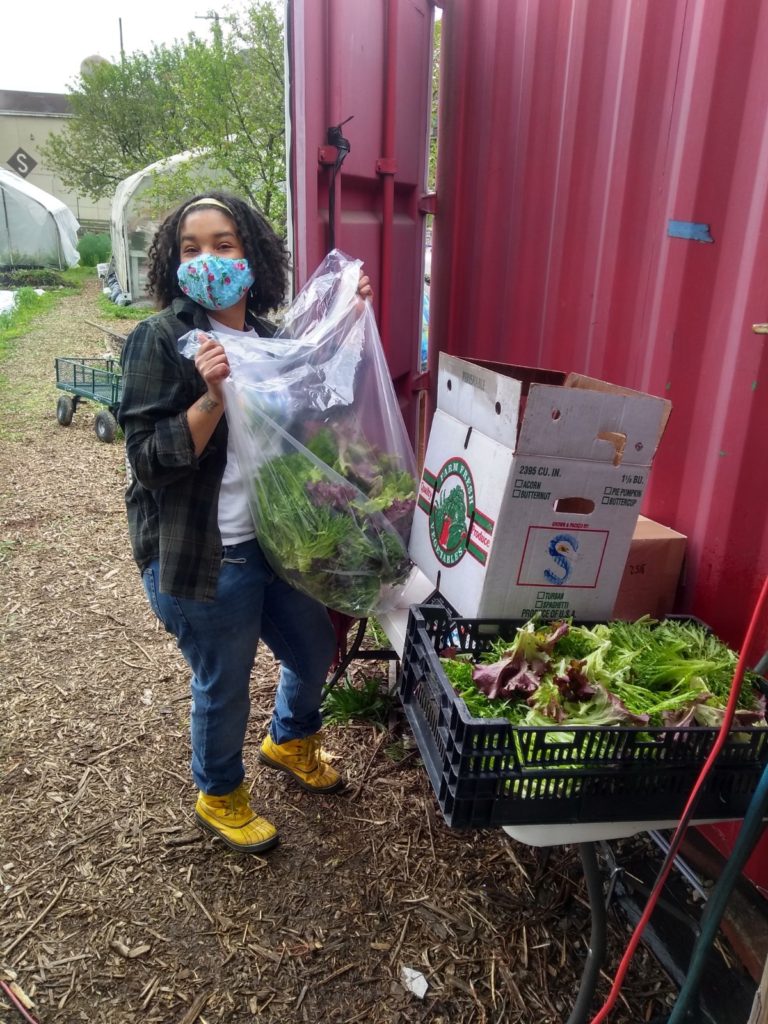
July 30, 2020
The current public health and economic crises are disrupting lives throughout our community with access to food more challenging than ever for those in need and trips to the grocery store fraught with fears of exposure. Access to food is a right, and we need local agriculture now more than ever. Grow Pittsburgh’s mission is to teach people how to grow food and promote the benefits that gardens bring to our neighborhoods.
Today, we are seeing two major short and longer term challenges that the COVID-19 outbreak is presenting to our community. First, food insecurity is heightened among the most vulnerable populations in Pittsburgh. Relief efforts are focused on non-perishable foods that are essential but often don’t provide the nutritional content that fresh fruits and vegetables provide. Second, local urban and regional farmers have lost a reliable source of income in sales to restaurants. These small businesses and community members are scrambling to remain in business by adjusting their planting schedules to focus on direct-to-consumer sales, but they are in need of support to secure this outlet.
Grow Pittsburgh, in partnership with the Pittsburgh Food Policy Council, Black Urban Gardeners and Farmers Cooperative, Operation Better Block, The Oasis Project, and the Sankofa Village Community Garden, has worked to address both of these challenges by setting up a weekly farm stand in the neighborhood of Homewood. This farm stand provides produce grown directly in the Homewood neighborhood to community members while accepting Supplemental Nutrition Assistance Program (SNAP) benefits, Food Bucks and Farmer’s Market Nutrition Program checks. The local urban farmers and farm stand workers are able to receive reliable income to support their farm operations while supplying food to their community. Additional produce that is more difficult to grow at scale in an urban setting, like corn, is bought directly from regional farmers to supplement the offerings and further support the regional food system.
While this is one solution, among many, that will be necessary for the resiliency of our community during this difficult time, we have initially seen great success and are eager to scale this model and support other communities in starting similar pop-up farmer’s markets.
We believe that growing our own food can be a vehicle towards meaningful change in our social, economic, environmental, health and educational world and continue to put people at the center of this work.
Jake Seltman
